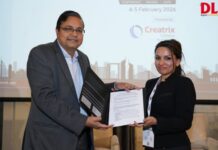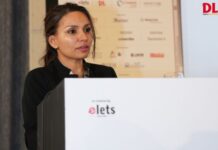
A National Vision, A Local Challenge
India’s National Education Policy (NEP 2020) and the NIPUN Bharat Mission have set an ambitious but essential target: Ensure that every child in the country achieves Foundational Literacy and Numeracy (FLN) by Grade 2.
It is a visionary goal, but one that many schools are still struggling to implement meaningfully on the ground.
While curriculum changes and play-based activities have begun, one key element remains largely missing: a structured, joyful, multi-level assessment framework to monitor, celebrate and reinforce foundational learning.
The Foundational Stage – Too Critical to Leave Unmeasured
The NEP defines the Foundational Stage as covering children aged 3 to 8 (Nursery to Grade 2). Research confirms that these years represent the most sensitive period in brain development, with long-term impacts on language, logic, reasoning, emotional stability and lifelong learning capacity.
Yet, most schools still rely on unstructured worksheets or rote tasks that miss the bigger goal. They should be aware of the right direction.
The truth is:
- FLN milestones are difficult to track informally.
- Parent engagement drops when learning isn’t visible.
- Teachers lack tools that both assess and excite.
- Recognition is rare, though it’s deeply motivating at this age.
We urgently need NEP-aligned assessments that are low-stress, high-engagement, and capable of spanning schools across diverse geographies.
What Structured Assessment Can Look Like in Early Years
A good foundational assessment system should:
- Be visual, activity-based and developmentally appropriate
- Include oral and pictorial tasks instead of text-heavy formats
- Cover core FLN areas: Vocabulary, comprehension, phonics, number sense, spatial awareness
- Include life-awareness and cultural contexts (as NEP 2020 recommends)
- Allow multiple stages of progression to show growth: school → interschool → State → National
- Celebrate effort, not just performance
In short, it should look less like an exam and more like a celebration of learning.
The Olympiad Model — Reimagined for Early Learners
Traditionally, Olympiads were meant for high-achieving students in upper grades. But that’s changing.
Across India, a new wave of NEP-aligned assessment is emerging, including age-appropriate Olympiads that cover:
- Mathematics: Counting, patterns, shapes
- Science: Senses, the body, environment
- English: Phonics, vocabulary, picture-based comprehension
- Humanities: Daily life, communities, culture
- Heritage: Indian festivals, stories, mythology
Some of these programs are multi-level, low-pressure, and designed by educators with deep Olympiad experience, like the one at https://preschoololympiad.com. They offer a seamless bridge between learning and visible achievement, with full school support and parental involvement.
What Schools Can Do Next
School leaders don’t need to reinvent the wheel.
They can now tap into ready-to-use, NEP-compliant Olympiad formats that reinforce classroom teaching, involve parents, train teachers and track foundational learning — without burdening staff or disrupting the school calendar.
Participation in such frameworks shows alignment with national goals and positions the school as a forward-looking institution committed to real learning, not just reporting.
Also Read: AI and Edtech as catalysts for Educational Transformation in India
Finally, A Call to Action
NEP 2020 and NIPUN Bharat have given schools a clear direction. But direction needs tools.
Foundational assessments can no longer be informal, inconsistent or invisible. With thoughtful, joyful, structured assessments designed specifically for early learners, schools can finally bridge the gap between vision and action.
As the foundational decade of education begins to transform, let your school be among those who lead, not follow.
For more on implementing NEP-aligned Olympiads in your school, reach out to initiatives like the Preschool Olympiad project.






















